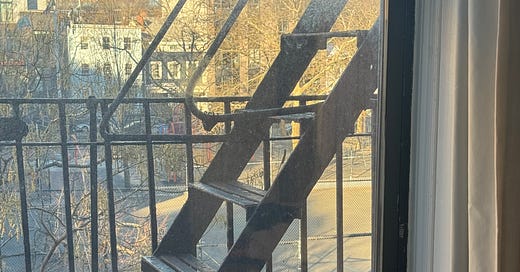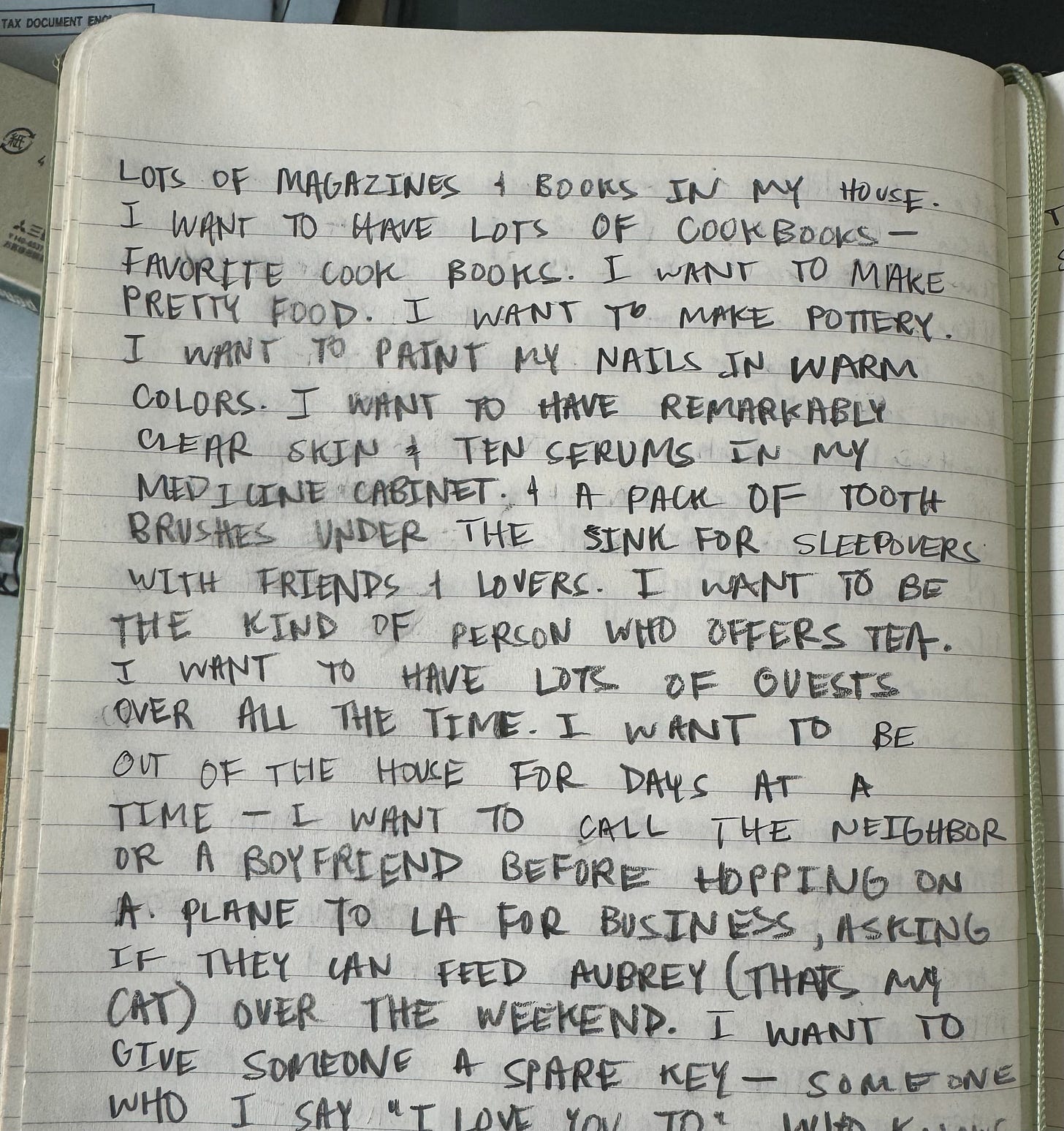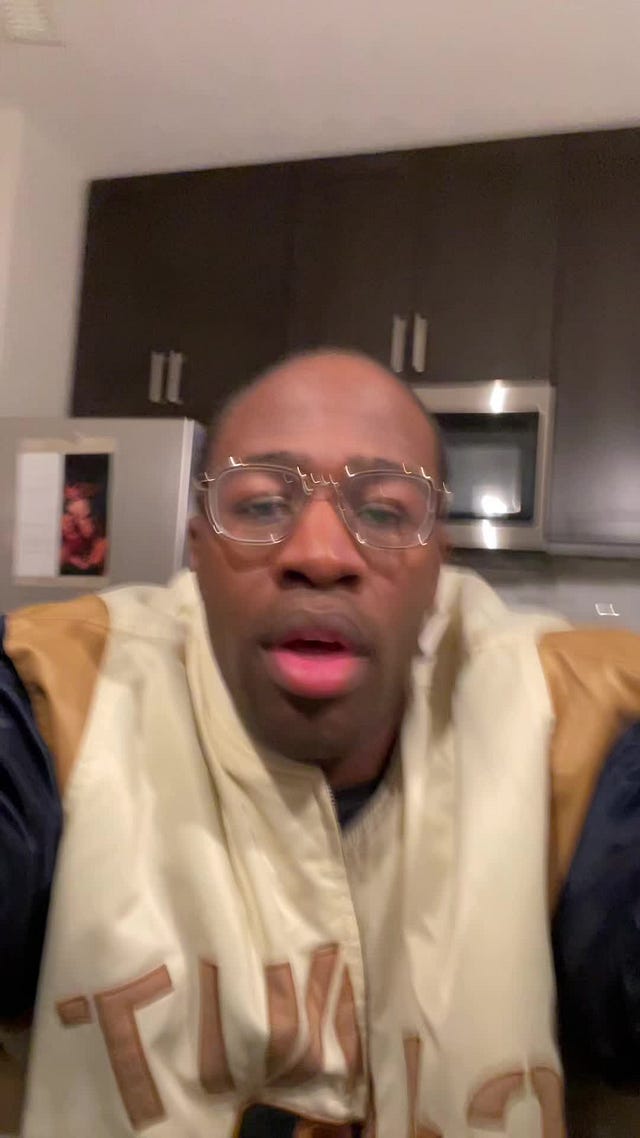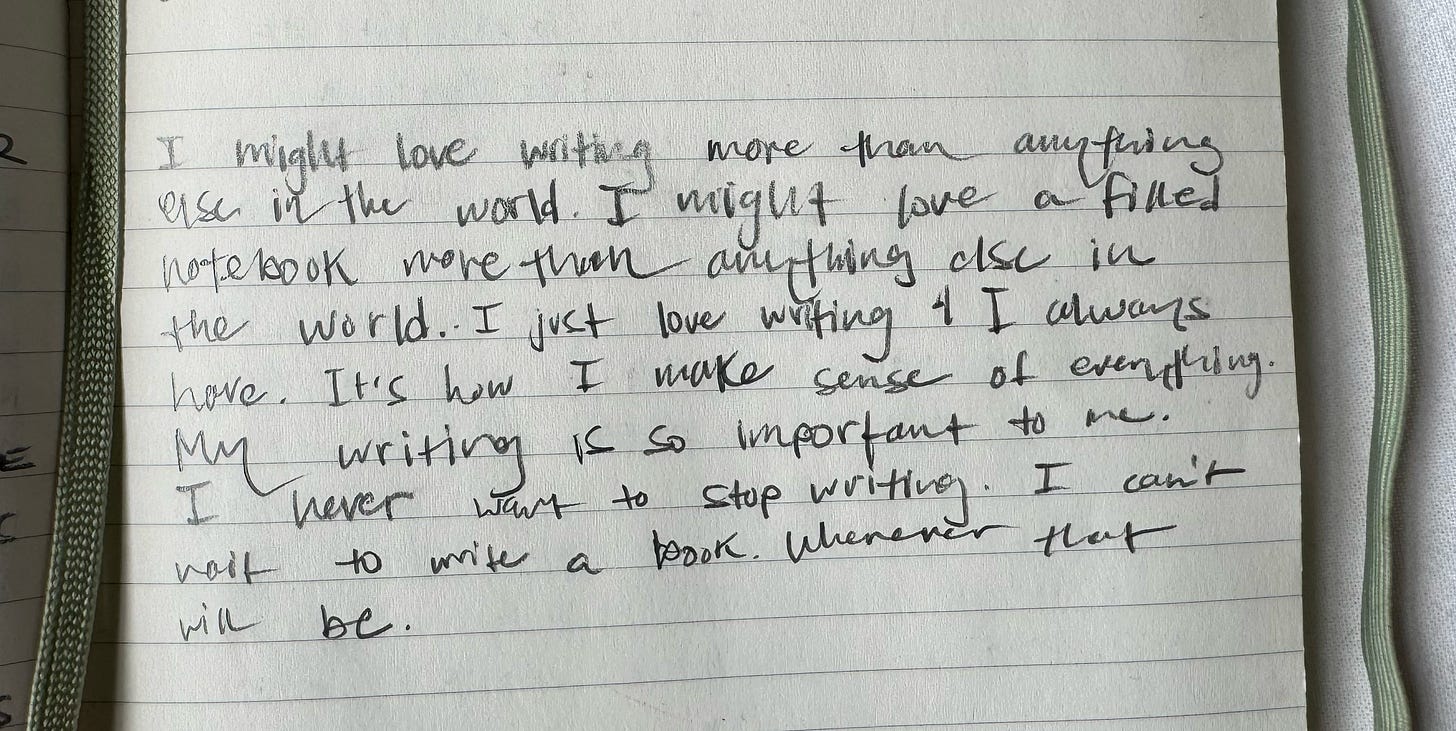In my bedroom, propped up on the window sill overlooking my street, are a stack of notebooks of various sizes and colors, otherwise known as my journals.
The journals on my window sill serve as a comprehensive record of my life from the present to around 2016, the year I was a junior in college, Trump became president, and SZA released ‘Ctrl’. For anything further back than that, I have a box under my bed full of deep cut journals – the one with the rainbow peace signs on it from 8th grade, the one with the grayscale image of the statue of liberty from 11th grade, and the pink composition notebook with the unicorn sticker on it that details the summer between 5th and 6th grade.
Journaling has been a part of my writing practice for as long as I can remember. Back before I considered writing a “practice.” Back when writing was something I just did. When not writing didn’t feel like an option.
I keep my journals close by in the not-so-rare case that I need to feel something. Revisiting journal entries allows me to gain access to a different version of myself. Just the other day, I opened up my journal from 2017, a sage green, lined Moleskine that I bought from Skylight Books in Los Feliz. There was a specific journal entry I’d written in a cafe in New York that I wanted to go back and read again. In the journal entry, I was a senior in college, and all I could do to get myself through those final semesters was to imagine what my life would be like after I graduated.
Whether I knew it or not, this journal entry was essentially a form of manifestation. I didn’t know then what I know now, but I still (maybe foolishly) had hope. When I look around at my life now, so much of what I dreamed and hoped for back then has come to fruition. And the things that didn’t seem to matter less.
For many of us, journaling is not just a girlish pastime, but an essential documentation of girlhood.
As a child, I’d hide my journal, which came with a silver lock and a tiny key, behind mounds of teddy bears in my bedroom so that no one would ever find it. I vividly remember watching commercials for the GirlTech Password Journal that allegedly only opened to the sound of the owner’s voice. Recently, my mom found her diary from when she was 14-years-old. She sent me a video, doing a dramatic reading of one of the entries but not before sending a text in all-caps that said: “DO NOT SHOW THIS VIDEO TO ANYONE.”
The inherent urge to protect these documentations of girlhood speaks to the undeniable importance of the journal.
It makes me think about this TikTok by NotWildlin, in which he talks about how Anne Frank was compelled to document her life after hearing a radio broadcast from the Dutch minister for education, art and science, in which he emphasized the historical need for personal accounts of life under the Nazi occupation:
“History cannot be written on the basis of official decisions and documents alone,” he’d said. “What we really need are ordinary documents—a diary, letters.”
It makes me think about this Instagram post by Plestia Alaqad, a journalist documenting the genocide in Gaza. In the post there are several photos of various journal entries and memorabilia from her life before the genocide. There is one photo of all her journals stacked on top of each other, which struck me in particular because the image so reminds me of the journals lined up on my window sill. Plestia’s caption reads:
“What I miss the most is my diaries and journals, I’ve been literally writing since 2012 or 2013 not sure.. I had many diaries and journals, I used to write short Arabic stories when I was in elementary school.. and I used to write a lotttt of poetry in grade 12 during Math and English class especially.. I feel like a psychopath saying that but I had a notebook where I wrote people’s name and I just write how I feel about them that was my way of not gossiping out loud.. I can’t imagine that now all these diaries and journals may be gone forever…”
Now when I look at the journals on my window sill, I think of Plestia. I think about how even the loss of personal archives, which might be considered minuscule in the grand scheme of the ongoing genocide in Gaza, deserves our attention.
As writers, journaling can serve as an entry-way into other forms of writing.
In an interview in Black Women Writers at Work edited by Claudia Tate, Toni Cade Bambara shared that it was a journal entry that became the impetus for her book, The Salt Eaters.
Last fall, I took a writing workshop taught by
on utilizing memory and diary entries as a way to generate ideas for larger bodies of work. One of the exercises we did in the workshop was writing about a real life experience as we would in a journal entry, and then immediately after, writing about the same experience but in the third person. This had the effect of stepping away from the experience enough that I became a character in the story. It made me think about how when we zoom out of our own experience, it becomes but one part of a larger narrative.By now we’ve all probably heard about the benefit of doing morning pages as instructed in the infamous The Artist’s Way. (If you, like me, have tried and failed to do morning pages consistently, you might be intrigued by this alternative option outlined in this newsletter by
.) Sometimes having a specific system/format for journaling can be really generative. But also sometimes journaling can just be writing with no rules.To me, the joy of journaling is that there is no one way to do it. Sometimes my journal entry is a stream of anxious thoughts that I just need to put down somewhere. Sometimes it’s a list of things I want to do for the week. Sometimes it’s me working out something I eventually want to write about at length. Sometimes it’s literally just one sentence in my notes app that’s like “I’m so pissed off right now.” And that’s also valid.
At the very least, journaling is an opportunity to be witnessed by yourself. When it’s been a long time since I’ve written anything that anyone else will read, I feel comforted by the fact that, at least I’m always writing in my journal. Journaling allows me to stay in conversation with myself, past and present. It allows me to always keep writing, even in a small way.












I had this girl tech journal and I loved it sm. Mom got mad at me for calling her the wicked bitch of the south tho 😔
Loved this as a fellow journaler 💓
I also just discovered summer Brennan and found her journaling tips really helpful for giving myself a little more structure when I feel like I need it!